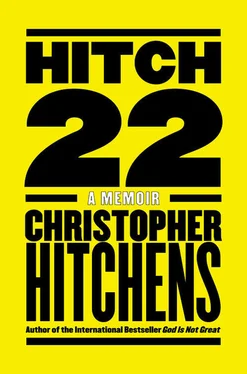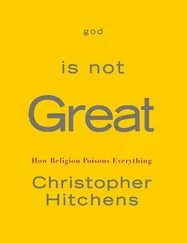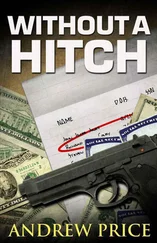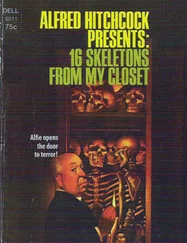There are still those, often in India for some reason, who make a living claiming land-rents from the deceased. From Gogol to Google; if one now looks up the sodality of those who have lived to read of their own demise, one strikes across the relatively good cheer of Mark Twain, who famously declared the report to be an exaggeration, to Ernest Hemingway, whose biographer tells us that he read the obituaries every morning with a glass of champagne (eventually wearing out the cheery novelty of this and unshipping his shotgun), to the black nationalist Marcus Garvey who, according to some reports, was felled by a stroke while reading his own death-notice. Robert Graves lived robustly for almost seven decades after being declared dead on the Somme. Bob Hope was twice pronounced deceased by the news media: on the second occasion I was called by some network to confirm or deny the report and now wish I had not so jauntily said, having just glimpsed him at the British embassy in Washington, that the last time I saw him he had certainly seemed dead enough. Paul McCartney, Pope John Paul, Harold Pinter, Gabriel García Márquez… the roll of honor and embarrassment persists but there is one striking instance that is more than whimsical. Alfred Nobel, celebrated manufacturer of explosives, is alleged to have been so upset by the “merchant of death” emphasis that followed mistaken reports of his own extinction that he decided to overcompensate and to endow an award for peace and for services to humanity (that, I would add, has been a huge bore and fraud ever since). “Until you have done something for humanity,” said the great American educator Horace Mann, “you should be
ashamed to die.” Well, how is one to stand that test?
In some ways, the photograph of me with Martin and James is of “the late Christopher Hitchens.” At any rate, it is of someone else, or someone who doesn’t really exist in the same corporeal form. The cells and molecules of my body and brain have replaced themselves and diminished (respectively). The relatively slender young man with an eye to the future has metamorphosed into a rather stout person who is ruefully but resignedly aware that every day represents more and more subtracted from less and less. As I write these words, I am exactly twice the age of the boy in the frame. The occasional pleasure of advancing years—that of looking back and reflecting upon how far one has come—is swiftly modified by the immediately succeeding thought of how relatively little time there is left to run. I always knew I was born into a losing struggle but I now “know” this in a more objective and more subjective way than I did then. When that shutter clicked in Paris I was working and hoping for the overthrow of capitalism. As I sat down to set this down, having done somewhat better out of capitalism than I had ever expected to do, the financial markets had just crashed on almost the precise day on which I became fifty-nine and one-half years of age, and thus eligible to make use of my Wall Street–managed “retirement fund.” My old Marxism came back to me as I contemplated the “dead labor” that had been hoarded in that account, saw it being squandered in a victory for finance capital over industrial capital, noticed the ancient dichotomy between use value and exchange value, and saw again the victory of those monopolists who “make” money over those who only have the power to earn it. It was decidedly interesting to have become actuarially extinct in the last quarter of the very same year that saw me “written off” in the more aesthetic and literary sense as well.
I now possess another photograph from that same visit to Paris, and it proves to be even more of a Proustian prompter. Taken by Martin Amis, it shows me standing with the ravissant Angela, outside a patisserie that seems to be quite close to the Rue Mouffetard, praise for which appears on the first page of A Moveable Feast . (Or could it be that that box of confections in my hand contains a madeleine?) Again, the person shown is no longer myself. And until a short while ago I would not have been able to notice this, but I now see very clearly what my wife discerns as soon as I show it to her. “You look,” she exclaims, “just like your daughter.” And so I do, or rather, to be fair, so now does she look like me, at least as I was then. The very next observation is again more evident to the observer than it is to me. “What you really look,” she says, after a pause, “is Jewish.” And so in some ways I am—even though the concept of a Jewish “look” makes me bridle a bit—as I shall be explaining. (I shall also be explaining why it was that the boy in the frame did not know of his Jewish provenance.) All this, too, is an intimation of mortality, because nothing reminds one of impending extinction more than the growth of one’s children, for whom room must be made, and who are in fact one’s only hint of even a tincture of a hope of immortality.
And yet here I still am, and resolved to trudge on. Of the many once handsome and beautiful visages in the catalogue a distressing number belong to former friends (the marvelous illustrator and cartoonist Mark Boxer, the charming but fragile Amschel Rothschild, the lovable socialite and wastrel—and half-brother to Princess Diana—Adam Shand-Kydd) who died well before they attained my present age. Of some other departures, the news had not yet reached me. “I had not thought death had undone so many.” In my career, I have managed to undertake almost every task that the hack journalist can be asked to perform, from being an amateur foreign correspondent to acting as stand-in cinema critic, to knocking out pieces of polemical editorial against the clock. Yet perhaps I have misused the word “undertake” above, because two jobs only I could not manage: covering a sporting event and writing an obituary of a still-living person. The former failing is because I neither know nor care anything about sports, and the second is because—in spite of my firm conviction that I am not superstitious—I cannot, not even for ready money, write about the demise of a friend or colleague until Minerva’s owl has taken wing, and I know that the darkness has actually come. I dare say that somebody, somewhere, has already written my provisional death-notice. (Stephen Spender was staying with W.H. Auden when the latter received an invitation from the Times asking him to write Spender’s obituary. He told him as much at the breakfast table, asking roguishly, “Should you like anything said?” Spender judged that this would not be the moment to tell Auden that he had already written his obituary for the same editor at the same paper.) Various death-watch desk managers at various times entreated me to do the same for Edward Said and Norman Mailer and Gore Vidal—to drop some names that will recur if you stay with me—and I always had to decline. Yet now you find me, trying to build my own bridge from, if not the middle of the river, at least some distance from the far side.
Today’s newspaper brings news of the death of Edwin Shneidman, who spent all his life in the study and prevention of suicide. He referred to himself as a “thanatologist.” The obituary, which is replete with the pseudo-irony so beloved by the near-moribund profession of daily print journalism, closes by saying: “ ‘Dying is the one thing—perhaps the only thing—in life that you don’t have to do,’ Shneidman once wrote. ‘Stick around for long enough and it will be done for you.’ ” A more polished obituarist might have noticed the connection to a celebrated piece of doggerel by Kingsley Amis:
Death has this much to be said for it:
You don’t have to get out of bed for it.
Wherever you happen to be
They bring it to you— free .
Читать дальше











